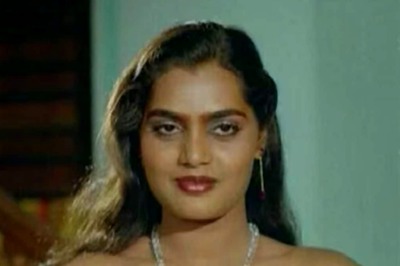
views
New Delhi: Honouring the immense contribution of Atal Bihari Vajpayee to Indian politics and nation building, the National Democratic Alliance (NDA) has decided to construct a separate samadhi-cum-memorial dedicated to nation’s first BJP prime minister on the banks of Yamuna near Rajghat in New Delhi.
In 2013, the UPA government had passed a law calling for the construction of a ‘Rashtriya Samiti’ or common memorial for all former Prime Ministers of India who did not have memorials of their own. The UPA government had cited “paucity of land” as the reason behind the law having a common Samadhi for all departed leaders. For the Vajpayee memorial to be built in New Delhi, the UPA law will have to be overturned. Sources said the law is likely to be scrapped at the next Cabinet meeting.
In addition to Mahatma Gandhi’s Samadhi at Raj Ghat, eight former Prime Ministers, two former Presidents and two Deputy PMs have memorials of their own. Jawaharlal Nehru’s memorial is called Shanti Vana (Garden of peace), Indira Gandhi’s is called Shakti Sthal (Place of power), Lal Bahadur Shastri’s is called Vijay Ghat (Victory platform) and that of Chaudhary Charan Singh is called Kisan Ghat (Farmers’ Ghat). The former Presidents who have their own memorials are Giani Zail Singh and Shankar Dayal Sharma, while the two former Deputy PMs who have memorials in New Delhi are Jagjivan Ram and Devi Lal.
Former Prime Minister Atal Bihari Vajpayee, who served as the PM in 1996 and then from 1998 to 2004, passed away in New Delhi on Thursday.
Vajpayee, who was suffering from a prolonged illness for over a decade, was 93 years old at the time of his death.
Preparations for the last rites are in place. Radio Communication team has been deployed. Pandal materials have been brought and police deployment has been increasing by the minute.
Born on Christmas Day in 1924 in Gwalior, Vajpayee’s first tryst with politics came as early as Mahatma Gandhi’s ‘Quit India’ movement, because of which a young Vajpayee and his brother even spent time in jail. In the late 1940s, he became a full time member of the Rashtriya Swayamsewak Sangh (RSS), which served as the platform for his eventual entry into politics.
In 1957, he was elected as a member of the 2nd Lok Sabha from Balrampur in Uttar Pradesh. He went on to serve 10 terms as a Lok Sabha MP and 2 terms in the Rajya Sabha. In 1996, Vajpayee led the BJP as it became the single largest party in the Lok Sabha. The President invited Vajpayee to form a minority government, although the government lasted only 13 days. In 1998, fresh elections were held and the Vajpayee-led National Democratic Alliance (NDA) formed the government.
During Vajpayee’s second stint as Prime Minister, India conducted nuclear tests at Pokhran, joining a small group of nations with nuclear weapons. He also worked for peace with Pakistan and undertook a historic bus journey from Delhi to Lahore, where he was greeted by his Pakistani counterpart Nawaz Sharif. Soon, however, the peace process was interrupted as the Kargil War broke out in 1999 between India and Pakistan.
In 2004, Vajpayee became the first ever non-Congress Prime Minister to complete a full term in office.
In December 2005, Vajpayee announced his retirement from active politics and handed over the reins of the party to LK Advani and Pramod Mahajan. In addition to being a politician, Vajpayee was known for his poetry. Political adversaries and allies alike often praised Vajapyee for his magnanimity and the ability to reach out across the aisle to opponents. The testament to Vajpayee’s stature was when former Prime Minister Manmohan Singh, in a speech in the Rajya Sabha, referred to Vajpayee as the ‘Bhishma Pitamah’ of Indian politics.




















Comments
0 comment